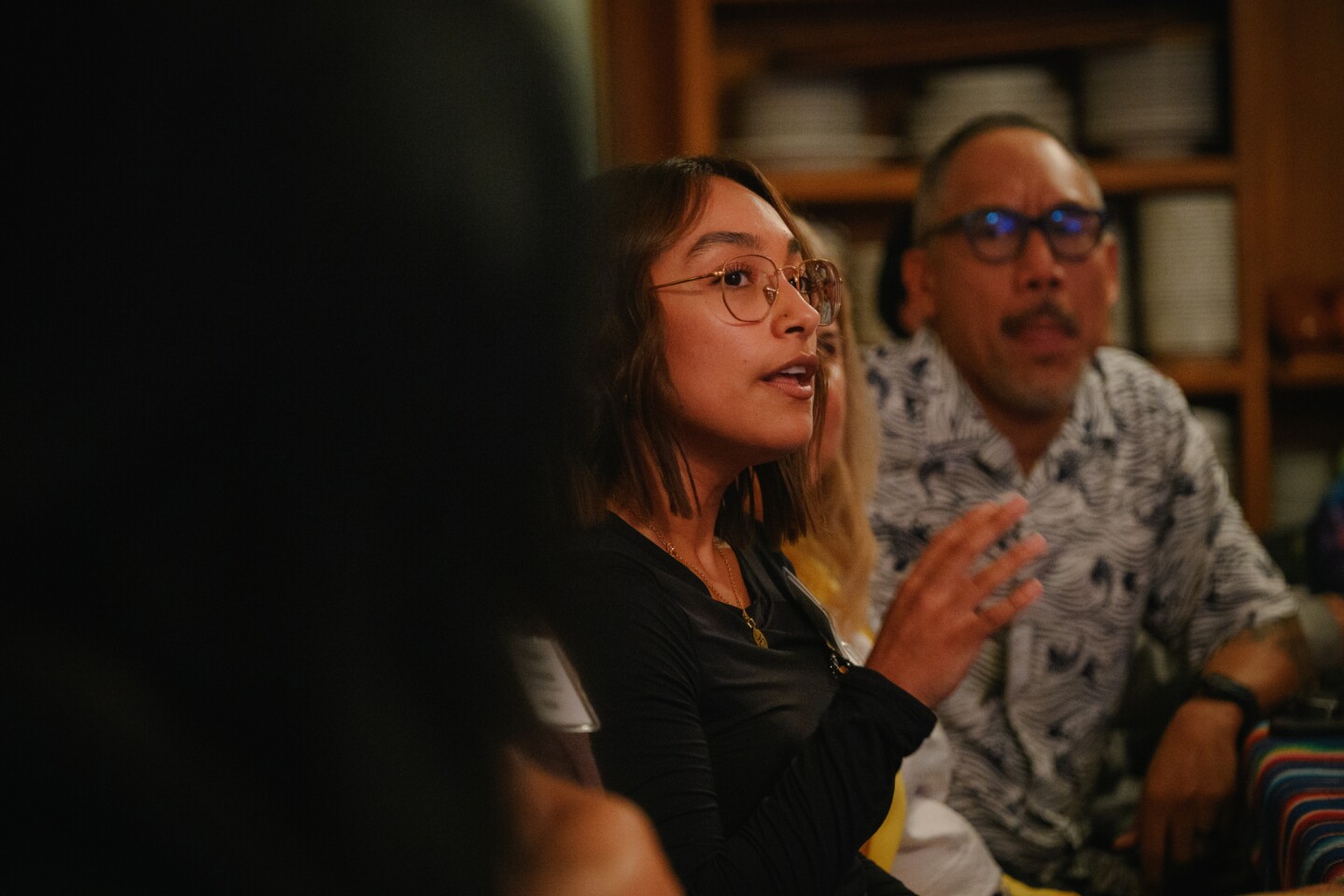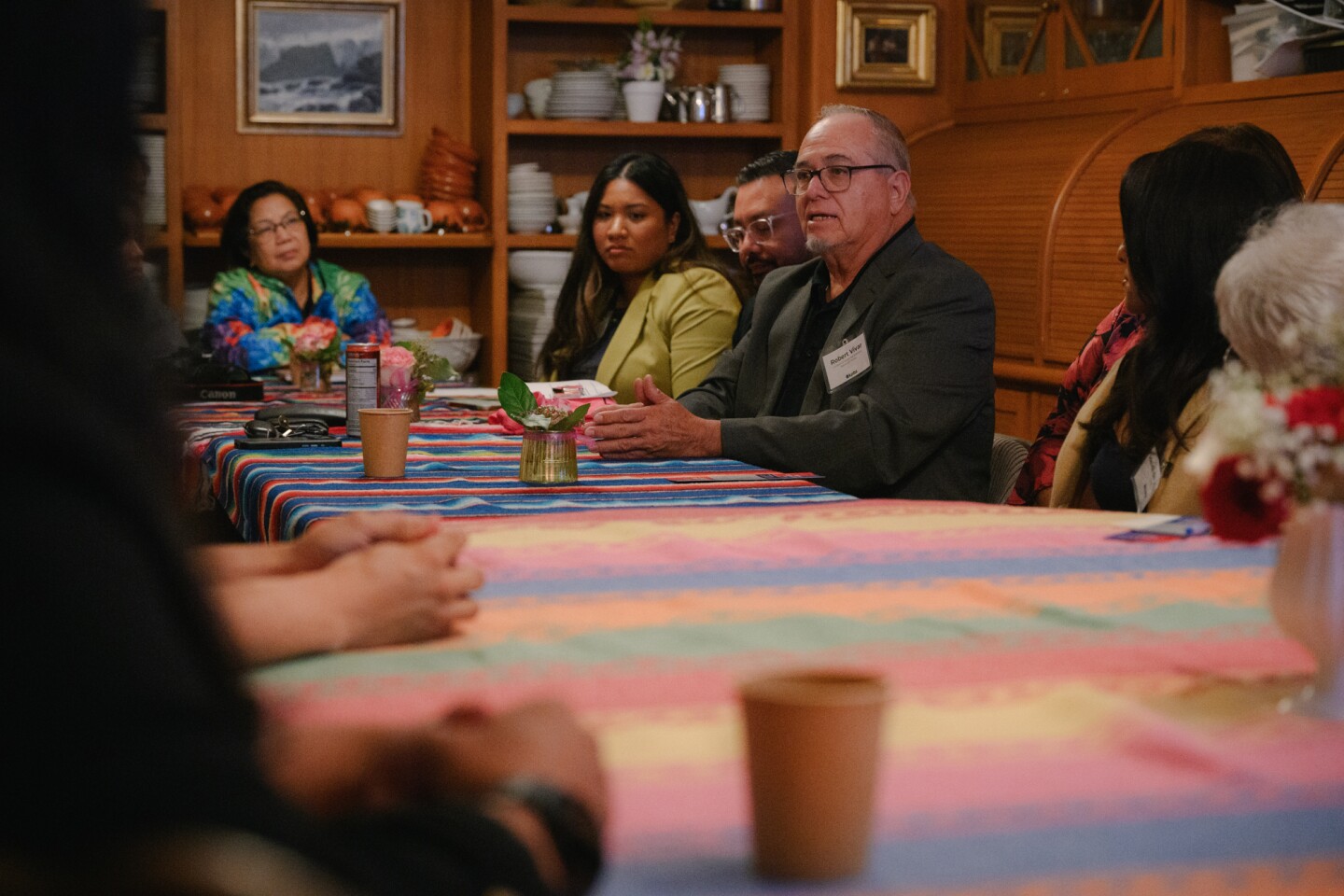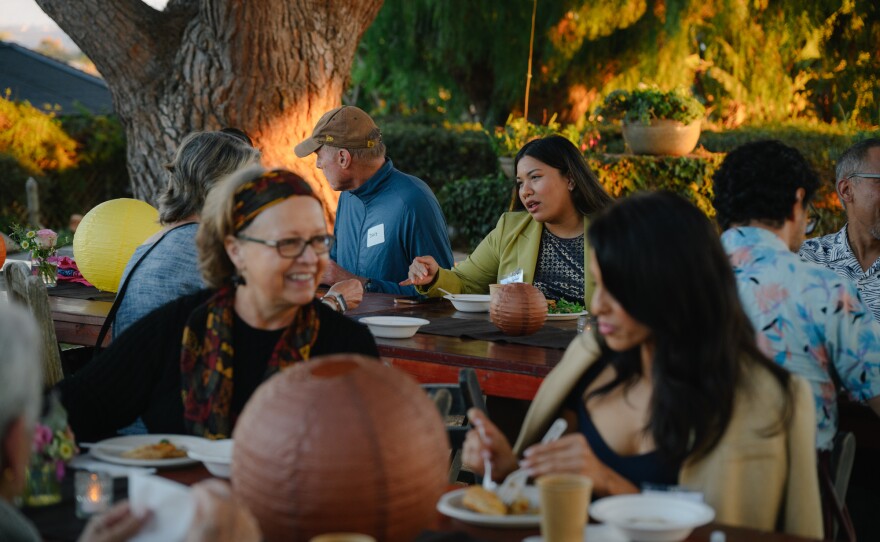KPBS recently held an intimate conversation with community members in the South Bay area, aiming to understand what drives, challenges and informs their decisions in the voting process. Held in a casual setting with local residents, the event explored crucial themes ranging from fears around voting to the role of education in civic engagement. The discussion provided a snapshot of the complex factors shaping community attitudes toward participation in democracy.
The event brought together a wide range of community leaders, business owners, influencers and emerging voices dedicated to uplifting their neighborhoods. They were selected for their commitment to inspiring civic engagement and addressing pressing issues in their communities.
The conversation was not recorded, and the community members were informed they would not be identified by KPBS so that they would feel free to express their thoughts.
Here are five key concerns voiced by community members during the conversation.
Fear and political division
A recurring theme was the anxiety many feel in today’s polarized political climate. Attendees shared that voting feels more consequential than ever, with some describing a sense of dread over current societal divides. For many, the pressure to vote stems from the desire to contribute to restoring balance and countering the extreme rhetoric they perceive from all sides.
Many expressed concerns over extreme viewpoints dominating conversations, making voting feel critical to safeguard against what some view as harmful shifts in policy and values. "It feels like I have to pick a side more than picking what I want, and it scares me. It makes me want to go into a turtle shell," one community member shared, highlighting the weight of decision-making amid division.
They also expressed fear about discussing political views with others, worried it could lead to conflict or misunderstanding.
Misinformation and distrust
Misinformation emerged as a key issue, with residents emphasizing the difficulty of navigating the overwhelming amount of false or misleading information circulating in the media. For many, misinformation is not only confusing but also erodes trust in the political process. Several attendees noted that biased or inaccurate translations further complicate matters, particularly in multilingual communities.
The impact of misinformation extends to feelings of distrust toward both candidates and policies, making it difficult for some to discern fact from fiction. Community members underscored a need for clear, reliable, and culturally sensitive information to help make informed decisions.


Social pressure and the vote
For some participants, social pressure played a significant role in their voting behavior. One attendee mentioned feeling an obligation to vote, especially among family and peers who look to them as a socially responsible example. Others pointed out that, as representatives of specific social or professional roles, they feel pressured to vote in line with community values or risk judgment.
This social pressure has both positive and negative effects; while it encourages voter turnout, it can also foster anxiety around making the "right" choice. One young voter shared that the fear of disappointing family members added stress to the process, especially with their first voting experience.
Trusted messengers and community influence
Attendees expressed the importance of trusted messengers in helping them interpret complex political issues. For many, trusted sources include family members, local leaders, or community organizations with longstanding reputations. These trusted figures serve as guides, helping to break down confusing political jargon and clarify policies that impact the community.
Community members noted that information shared by these trusted sources often feels more relatable and accessible. For some, these trusted relationships make them more likely to participate in the democratic process, as they feel better equipped with information that aligns with their values.

Education and civic engagement
Education was highlighted as a critical tool for empowering voters. Participants pointed out that political education needs to begin early and address civic engagement as a lifelong practice. They suggested that voting-related education should not only cover the logistics of voting, but also build a deeper understanding of how policy impacts communities.
Several attendees recommended more educational outreach through schools, community centers, and local media to enhance awareness and reduce the intimidation around voting. One participant expressed a desire for better resources to help young and first-time voters navigate the system and feel confident in their choices.
These issues cut especially deep in the South Bay, where the community’s proximity to the Mexico border and its large immigrant population — predominantly Latino and Filipino — gives rise to a distinct perspective on voting. Many residents say that political parties fail to fully understand and connect with them, often overlooking the unique concerns of the community. This disconnect, they explained, erodes motivation to participate in the voting process, making the lack of culturally attuned outreach a barrier to genuine civic engagement.







